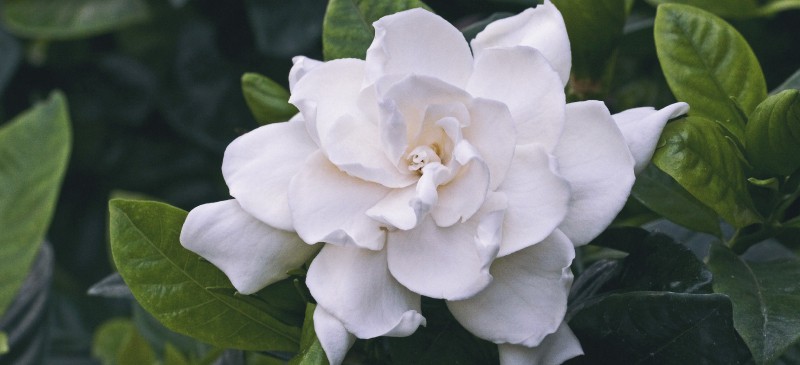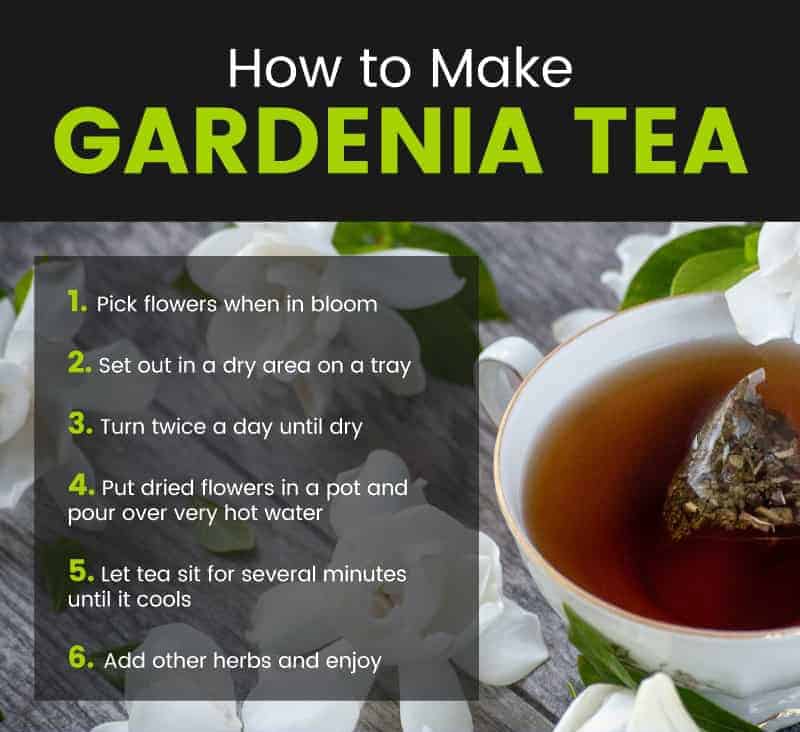This Dr. Axe content is medically reviewed or fact checked to ensure factually accurate information.
With strict editorial sourcing guidelines, we only link to academic research institutions, reputable media sites and, when research is available, medically peer-reviewed studies. Note that the numbers in parentheses (1, 2, etc.) are clickable links to these studies.
The information in our articles is NOT intended to replace a one-on-one relationship with a qualified health care professional and is not intended as medical advice.
This article is based on scientific evidence, written by experts and fact checked by our trained editorial staff. Note that the numbers in parentheses (1, 2, etc.) are clickable links to medically peer-reviewed studies.
Our team includes licensed nutritionists and dietitians, certified health education specialists, as well as certified strength and conditioning specialists, personal trainers and corrective exercise specialists. Our team aims to be not only thorough with its research, but also objective and unbiased.
The information in our articles is NOT intended to replace a one-on-one relationship with a qualified health care professional and is not intended as medical advice.
7 Benefits of Gardenia Flowers & Gardenia Essential Oil
May 22, 2025

Most of us know gardenias as the big, white flowers that grow in our gardens or the source of a strong, floral smell that is used to make things like lotions and candles. But did you know that gardenia flowers, roots and leaves also have a long history of use in Traditional Chinese Medicine?
Gardenia plants are members of the Rubiaceae plant family and native to parts of Asia and the Pacific Islands, including China and Japan. Today the ethanol extract of gardenia fruit and flowers is still utilized in many ways in herbal medicine and aromatherapy.
There are more than 250 different types of gardenia plants, one of which is called Gardenia jasminoides Ellis, the type primarily used to make essential oil.
As you’ll learn much more about, gardenias have been shown to have numerous actions, including serving as a natural antibacterial, analgesic, antifungal, diuretic, antiseptic, detoxicant and antispasmodic. Uses of the oil, supplements and other products include diffusing the oil to fight stress, applying it to your skin to treat wounds and drinking gardenia tea to enhance digestion.
What is gardenia?
Depending on the exact species that is used, the products go by many names, including Gardenia jasminoides, Cape Jasmine, Cape Jessamine, Danh Danh, Gardênia, Gardenia augusta, Gardenia florida and Gardenia radicans.
What types of gardenia flowers do people usually grow in their gardens? Examples of common garden varieties include August beauty, Aimee Yashikoa, Kleim’s Hardy, Radians and First love.
The most widely available type of extract that is used for medicinal purposes is gardenia essential oil, which has numerous uses, like fighting infections and tumors. Due to its strong and “seductive” floral smell and ability to promote relaxation, it is also used to make lotions, perfumes, body wash and many other topical applications.
What does the word gardenias mean? It’s believed that historically white gardenia flowers symbolized purity, love, devotion, trust and refinement, which is why they are often still included in wedding bouquets and used as decorations on special occasions.
The generic name is said to have been named in honor of Alexander Garden (1730-1791), who was a botanist, zoologist and physician who lived in South Carolina and helped develop the classification of gardenia genus/species.
Benefits and uses
Some of the many uses of gardenia plants and essential oil include for:
- Fighting free radical damage and formation of tumors, thanks to its antiangiogenic activities
- Infections, including urinary tract and bladder infections
- Insulin resistance, glucose intolerance, obesity, and other risk factors tied to diabetes and heart disease
- Acid reflux, vomiting, gas, irritable bowel syndrome (IBS) and other digestive issues
- Depression and anxiety
- Fatigue and brain fog
- Abscesses
- Muscle spasms
- Fever
- Menstrual pains
- Headaches
- Low libido
- Poor milk production in nursing women
- Slow healing wounds
- Liver damage, liver disease and jaundice
- Blood in the urine or bloody stools
What active compounds are responsible for the beneficial effects of gardenia extract?
Studies have found that gardenia contains at least 20 active compounds, including a number of powerful antioxidants. Some of compounds that have been isolated from the edible flowers of wild Gardenia jasminoides J.Ellis include benzyl and phenyl acetates, linalool, terpineol, ursolic acid, rutin, stigmasterol, crociniridoids (including coumaroylshanzhiside, butylgardenoside and methoxygenipin) and phenylpropanoid glucosides (such as gardenoside B and geniposide).
What are the uses of gardenia? Below are some of the many medicinal benefits that the flowers, extract and essential oil have.
1. Helps fight inflammatory diseases and obesity
Gardenia essential oil contains many antioxidants that fight free radical damage, plus two compounds called geniposide and genipin that have been shown to have anti-inflammatory actions. It’s been found that it may also help reduce high cholesterol, insulin resistance/glucose intolerance and liver damage, potentially offering some protection against diabetes, heart disease and liver disease.
Certain studies have also found evidence that gardenia jasminoide may be effective in reducing obesity, especially when combined with exercise and a healthy diet. A 2014 study published in the Journal of Exercise Nutrition and Biochemistry stated, “Geniposide, one of the main ingredients of Gardenia jasminoides, is known to be effective in inhibiting body weight gain as well as improving abnormal lipid levels, high insulin levels, impaired glucose intolerance, and insulin resistance.”
2. May help reduce depression and anxiety
The smell of gardenia flowers is known to promote relaxation and help people who are feeling wound up de-stress. In Traditional Chinese Medicine (TCM), gardenia is included in aromatherapy and herbal formulas that are used to treat mood disorders, including depression, anxiety and restlessness.
A meta-analysis published in 2023 reviewed 12 randomized, controlled trials involving 822 patients with diabetes and comorbid depression. The study found that a traditional Chinese herbal formula containing Gardenia Fructus significantly reduced depression severity, as measured by the Hamilton Depression Rating Scale, compared to no antidepressant treatment.
However, the authors noted a high risk of bias in the included studies, suggesting that the results should be interpreted with caution.
3. May help soothe the digestive tract
Ingredients isolated from Gardenia jasminoides, including ursolic acid and genipin, have been shown to have anti-gastritic activities, antioxidant activities and acid-neutralizing capacities that protect against a number of gastrointestinal issues in animal research. For example, research on rats conducted at Duksung Women’s University’s Plant Resources Research Institute in Seoul, Korea, and published in Food and Chemical Toxicology, found that genipin and ursolic acid may be useful in the treatment and/or protection of gastritis, acid reflux, ulcers, lesions and infections caused by H. pylori action.
Genipin has also been shown to help with digestion of fats by enhancing production of certain enzymes. It also seems to support other digestive processes even in a gastrointestinal environment that has an “unstable” pH balance, according to research published in the Journal of Agricultural and Food Chemistry and conducted at Nanjing Agricultural University’s College of Food Science and Technology and Laboratory of Electron Microscopy in China.

4. Fights infections and protects wounds
Gardenia contains many natural antibacterial, antioxidant and antiviral compounds. To fight colds, respiratory/sinus infections and congestion, try inhaling gardenia essential oil, rubbing it over your chest, or using some in a diffuser or face steamer.
A small amount of the essential oil can be blended with a carrier oil and applied to the skin to fight infection and promote healing. Simply mix the oil with coconut oil, and apply it over wounds, scratches, scrapes, bruises or cuts. (Always dilute essential oils first.)
5. May help reduce fatigue and pain (headaches, cramps, etc.)
Gardenia extract, oil and tea are used to fight pains, aches and discomfort associated with headaches, PMS, arthritis, injuries like sprains and muscle cramps. It also has certain stimulating qualities that may even help lift your mood and enhance cognition, as shown in animal studies.
It’s been found that it can improve circulation, reduce inflammation, and help deliver more oxygen and nutrients to parts of the body that need healing. For this reason, traditionally it was given to people fighting chronic pains, fatigue and various illnesses.
An animal study demonstrated that the ethanol extract of gardenia significantly reduced pain responses in mice models. However, these findings are based on animal studies and may not directly translate to human outcomes, so more human research is needed to confirm these effects.
6. Can help improve cognition and protect memory
A study published in the Chinese Journal of Natural Medicines found that gardenia extract helped with memory improvement, especially among older memory-deficit populations, including those with Alzheimer’s disease. In the study, two major components found within gardenia extracts, geniposide and gardenoside, seemed to help suppress the expression of immune-related genes in the brain, meaning they have anti-inflammatory effects that address the underlying mechanisms of memory deficits.
In addition, a 2025 human clinical study examined the effects of inhaling the floral scent of Gardenia jasminoides on cognitive and emotional functions. In this study, college students were exposed to gardenia’s aroma, and researchers observed significant physiological and psychological changes.
Notably, there was an increase in alpha brain wave activity, which is associated with a relaxed yet alert mental state conducive to improved cognitive performance. Additionally, participants reported enhanced feelings of energy and self-esteem.
These findings suggest that the inhalation of gardenia’s floral volatiles may positively influence cognitive functions and emotional well-being.
7. Aids restful sleep
A human clinical study investigated the effects of crocetin, a carotenoid compound derived from Gardenia jasminoides, on sleep quality in individuals experiencing mild sleep complaints. In this randomized, double-blind, placebo-controlled, crossover trial involving 21 healthy adult men, participants received either crocetin or a placebo for two weeks, followed by a two-week washout period before switching treatments.
Objective sleep quality was assessed using actigraphy, and subjective sleep quality was evaluated with the St. Mary’s Hospital Sleep Questionnaire.
The results demonstrated that crocetin administration led to a significant reduction in the number of nighttime awakenings compared to the placebo. Additionally, participants reported improvements in subjective sleep quality.
No adverse effects were observed during the study. These findings suggest that crocetin may enhance sleep quality, which could potentially alleviate fatigue associated with poor sleep.
Use in TCM and Ayurveda
In China, gardenia fruit is called Zhi Zi or Sheng Shan Zi. According to TCM, it has strong, bitter and cold properties that help protect the heart, lungs and stomach.
It is said to act on the Triple Warmer (san jiao) meridians. Its uses include purging excess heat, dispelling damp heat and cooling the blood.
Gardenia is used in TCM to help lower blood pressure, stop bleeding, treat insomnia, treat urinary tract infection, relieve swelling and bruises due to trauma, and alleviate pain associated with sprains and abscesses.
TCM practitioners recommend taking dosage of about three to 12 grams per day. Dried gardenia powder, tea or extract can all be used internally. It may also be applied directly to the skin.
Gardenia is referred to by several different names in Ayurvedic medicine, including Dakamali and Nahi Hingu. It is used to help treat conditions including fever, indigestion, wounds, skin diseases and abdominal pain.
It is said to have a pungent, bitter taste that is dry in nature. These properties are believed to help with digestion and reduce heat and dampness.
It is recommended most for Kapha and Vata types, who benefit from its protection against indigestion and infections.
A common use in Ayurveda is using the resin, either applied to the skin or taken in powder form. Doses of 200-500 milligrams of power per day are recommended for conditions like intestinal worms, bloating and constipation, coughs, and inflammation of the gums.
Gardenia vs. jasmine
How does gardenia compare to other medicinal plants, such as jasmine?
- Jasmine essential oil is another mood-booster and stress-reliever. Like gardenia, jasmine (Jasminum officinale) has been used for hundreds of years in parts of Asia as a natural remedy for depression, anxiety, emotional stress, low libido and insomnia.
- Both are said to have “seductive” qualities due to their scents helping increase sensuality and arousal. In fact, jasmine oil has been nicknamed “queen of the night” due to its ability to improve libido and energy.
- Jasmine oil is believed to have antiviral, antibiotic and antifungal properties, much like gardenia. Studies have found that use of jasmine can lead to improvement in moods and a decrease in both physical and emotional signs of low energy. It may also help fight harmful bacteria and viruses and help prevent sickness, irritation, fungus and viral infections.
- Jasmine oil can either be inhaled through the nose or applied directly to the skin. It doesn’t need to be combined with a carrier oil and instead is recommended to be used undiluted for the best results.
- Try using jasmine and gardenia together with massage oil or in body lotions, body scrubs, homemade soaps and perfumes, and homemade candles.
Supplements and dosage
Gardenia essential oil
The essential oil is made by extracting active ingredients found in the plant’s volatile acids. Petals from the flowers are usually the source of extract/oil, although the leaves and roots can also be used.
How is gardenia essential oil used? It can be diffused in your home, applied topically to the skin when diluted when a carrier oil, or added to baths, lotions, body sprays and perfumes.
The oil has a delicate, sweet and floral aroma. To use the oil on your skin and hair, combine it with coconut, jojoba or almond oil to enhance absorption and add moisture.
To use it to de-stress, try adding several drops to your bath or diffusing it throughout your room before bed time. For the best results, and for your safety, purchase 100 percent pure organic gardenia essential oil.
Gardenia supplements/capsules
Gardenia is considered safe in doses of three to 12 grams taken by mouth daily. Gardenia supplements are available online, although these have not been as widely researched as the oil.
It’s common to find extract in combination products that also include other herbs/medicinal flowers.
The supplements should not be confused with garcinia cambogia supplements, which are used to enhance weight loss and reduce appetite. These are not sourced from the same plant and have different effects.
Gardenia tea
Gardenia tea, which has a light/sometimes sweet taste and natural diuretic effect, can be made using dried flowers. You can also add other herbs to the tea to enhance the benefits, like rosemary, oregano, basil and thyme.
Here’s how to make gardenia tea:
- Pick flowers when they are in bloom.
- Dry the flowers by setting them out in a dry area on a tray and turning them twice a day until dry.
- Then put them in a pot, and pour over very hot water.
- Let the tea sit for at least several minutes until it cools. Then add other herbs, and enjoy.

What is gardenia fruit? Some products claim to use gardenia fruit in their capsules or formulas, but the plants do not actually grow edible fruits like you might picture.
Gardenia jasminoides is another name for the fruit, which is a part of certain gardenia species that grow in the warm months of the year. The fruit looks like an orange-colored berry that contains a sticky pulp.
It is usually dried and ground to make a concentrated powder. Gardenia resin, on the other hand, is obtained from the plant’s stems/branches.
How to grow
Gardenia plants, including the popular species Gardenia jasminoides, are dark green evergreen shrubs that grow in warm climates throughout the year. Most produce very fragrant white flowers, although the flowers can turn yellow, beige or orange depending on the time of year.
The plants bloom in warm climates all year long or summer and late spring in cooler climates. They tend to grow up to three to six feet high and become rather wide if they have room to expand.
You can grow a large variety of gardenia plants/bushes at home and then use the fresh flowers in various ways. Here are tips for growing your own:
- Do gardenias need sun or shade? They like to grow in full sun or light shade. They also tend to bloom the best when grown in moist, acidic soil. It’s recommended that you use organic soil or organic mulch to get the best results when growing gardenias.
- When it becomes very hot and sunny, the plants do best when they have at least some shade, otherwise they can overheat. Why are the leaves turning yellow? This is a sign they are becoming “sun scorched.”
- Because the flowers are bright white with dark green leaves and very pretty, you can pick them off and use them as decorations or leave a row of bushes in the ground to create hedges.
Risks and side effects
Potential side effects associated with use of gardenia capsules or essential oil may include loss of appetite, diarrhea or loose stools, skin irritation and inflammation, and possible complications in pregnant/nursing women and with children.
Although the oil has been used for many years to support milk production in nursing mothers, there haven’t been many studies proving it is always safe for pregnant or nursing women. Because there is not enough known about the potential effects of gardenia during pregnancy or breastfeeding, use caution, and consider consulting your doctor first.
Final thoughts
- Gardenia plants grow large white flowers that have a strong, soothing smell. Gardenias are members of the Rubiaceae plant family and native to parts of Asia and the Pacific Islands.
- The flowers, leaves and roots are used to make medicinal extract, supplements and essential oil.
- Potential benefits and uses include protecting against chronic diseases like diabetes and heart disease, fighting depression and anxiety, reducing inflammation/oxidative stress, treating pain, reducing fatigue, fighting infections, and soothing the digestive tract.

